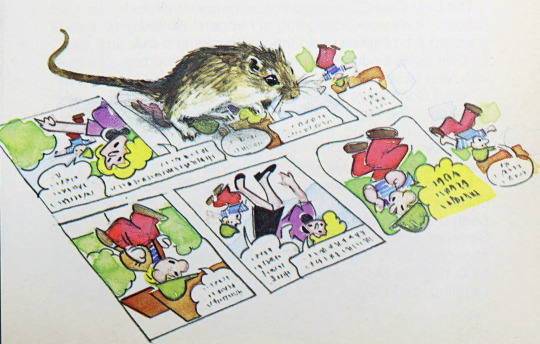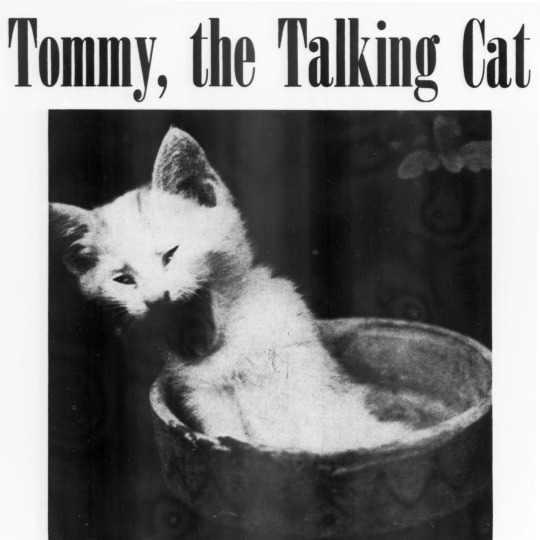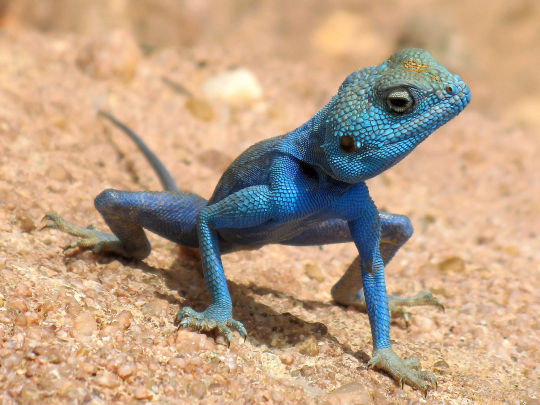#animal intelligence
Note
Do you believe it’s helpful to compare non-human animal intelligence to human intelligence?
I think that it can be helpful as a way of trying to understand the cognitive capacities of non-human animals, so long as we recognise the limits of any such comparison. Intelligence is an inherently human concept; we base intelligence on what we can do. That isn’t necessarily bad, we need a reference point after all, but we’ve made the mistake of judging our own kind of intelligence as the only kind there is.
We are really just scratching the surface when it comes to animal intelligence and perception. We can measure how they perform tasks that we invented to measure intelligence as we define it, but we can never really know what it is ‘like’ to be a dog, or a bat, or a fish. Many behaviours we think of as ‘intelligent’ have no benefit for many animals, so how ‘intelligent’ would it be for them to develop it?
Likewise, there are realms of perception that we just can’t touch. We consistently underestimate how radically different every creature’s inner and outer world is to our own. It is what the biologist Jakob von Uexküll calls an animal’s ‘Umwelt,’ their own unique sensory world. We can’t even do this with animals we know well, never mind with animals radically different to us.
Just look at dogs. Most of the intelligence experiments involve getting dogs to perform a specific task, and most of it is based on sighted intelligence, because that is at the centre of our Umwelt. But the primary sensory modality of a dog is not sight, it is smell. How often do we think a dog isn’t performing a set task because they can’t remember that the first button produces food and the second button doesn’t, when they’re actually responding to perceptual clues we can’t even perceive?
There is just so much about animal behaviour that we don’t understand. Why do cephalopods like octopus, squid, and cuttlefish put on elaborate colour shows when alone, when their eyes appear to only see in grayscale? What are they perceiving and what are they responding to? How do we measure animal intelligence for an animal that has sonar? Or an animal that can see ultraviolet light? Or can sense minor vibrations from miles away?
Intelligence is just such a distinctly human concept that it is hard to apply to minds that are so different to our own. We sort of assume intelligence is a scale with us at the top, and we measure how close other animals are to us on that same scale. But non-humans need a different scale entirely. That is the biggest problem with the study of animal intelligence in general, we too often assume we’re studying lesser minds, rather than just other minds.
17 notes
·
View notes
Text
honestly, the things that insects are capable of will never cease to amaze me
#bugs#bugblr#insects#insect#entomology#bug#found elsewhere and uploaded by me#tiktok#bee#bees#animal intelligence#invertebrate intelligence
5K notes
·
View notes
Text
* * * News Interruption * * *
#pay attention#educate yourself#educate yourselves#reeducate yourself#knowledge is power#reeducate yourselves#think for yourself#think for yourselves#think about it#do your homework#news interruption#horse#animal intelligence
412 notes
·
View notes
Text
These Parrots Won’t Stop Swearing. Will They Learn to Behave—or Corrupt the Entire Flock?
A British zoo hopes the good manners of a larger group will rub off on the eight misbehaving birds
A few years ago, a zoo in Britain went viral for its five foul-mouthed parrots that wouldn’t stop swearing. Now, three more birds at Lincolnshire Wildlife Park have developed the same bad habit—and zoo staffers have devised a risky plan to curb their bad behavior.
“We’ve put eight really, really offensive, swearing parrots with 92 non-swearing ones,” Steve Nichols, the park’s chief executive, tells CNN’s Issy Ronald...
#parrot#zoos#bird#ornithology#animal behavior#animal communication#nature#animal intelligence#science
54 notes
·
View notes
Photo

Source details and larger version.
Animal intelligence: vintage reading and talking creatures.
59 notes
·
View notes
Text
Individual innovation is considered one sign of intelligence within species, and elephants are among the animals that researchers have long taken an interest in because of their sophisticated approach to problem solving. A newly published study in the journal Animal Behaviour details findings from a six-month-long study documenting the abilities of individual wild Asian elephants to access food by solving puzzles that unlocked storage boxes.
"This is the first research study to show that individual
wild elephants have different willingness and abilities to problem solve in order to get food," said the study's lead author Sarah Jacobson, a psychology doctoral candidate studying animal cognition at the CUNY Graduate Center and Hunter College. "This is important knowledge, because how animals think and innovate may influence their ability to survive in environments that are rapidly changing due to human presence."
Continue Reading.
88 notes
·
View notes
Text
For the first time, research reveals crows use statistical logic – Ars Technica
105 notes
·
View notes
Photo

Source details and larger version.
They've had many lives and many ages: cats I've met in my time travels.
44 notes
·
View notes
Note
Was off work the other day just relaxing and reading in bed when I heard distressed crow noises. Looked out my window and three crows were out there, one was laying on the ground on its back, wings spread and another was just kind of observing while the third was cawing and jumping around and pecking every now and then at the one laying on the ground. I grabbed my glasses to get a better look bc I was like “oh no! Are they injured?” Was putting my clothes on to go out and check it out to see if it needed me to call like a wildlife rehab when the one that was jumping around and pecking suddenly went onto its back on the ground. The one that was chilling started hopping around them. Then some kids started walking by to the playground back there and all three got up and flew away. It was just cool bc I’ve seen videos of crows playing but never saw it in person. It was also a hot day and the spot they were in was a dirt spot in thats shades most of the day. I wonder if they were just having fun having a dirt bath to cool down.
Most likely! Corvids regularly do lots of clever things to maintain a comfortable body temperature, much like we humans do. And a dust bath is an excellent way to get cool!
80 notes
·
View notes
Text
I was just reading the Wiki article on "Emotions in Animals" and apparently some scientists deadass oppose the notion that animals can feel things??
The only argument I get is "we shouldn't anthropomorphize animals because it could lead to harm; they do experience their own emotions but they're likely different than the way humans experience them." But outright saying "nah, only humans can be happy or sad and have intelligence" is so fucking arrogant. Literally no different than 17th-century Catholics who believed that only humans were deemed worthy enough by God to feel things.

"those who do not believe in the idea of animal intelligence" my brother in Christ tool use has been documented in a wide variety of species
68 notes
·
View notes
Text
“Octopuses in at least two aquariums have learned to turn off the lights by squirting jets of water at the bulbs when no one is watching, and short-circuiting the power supply. At the University of Otago in New Zealand, this became so expensive that the octopuses had to be released back into the wild.”
Peter Godfrey-Smith, Other Minds
67 notes
·
View notes
Text
i have a question about cat comprehension (and this probly applies to other pets too)
if pets like BilliSpeaks can comprehend human language when spoken outloud, (shown by when they respond in the same language via button-pressing)……
do ALL cats comprehend spoken human language from their owners, and most just cant demonstrate it cuz they dont have buttons?
i know sometimes dogs react behaviorally to the word “walk”!!
do most pets straight-up comprehend full sentences?????
#cats#dogs#fluentpet#hextiles#aac#aac device#talking dogs#talking cats#animal intelligence#augmentative and alternative communication#animal comprehension#cat intelligence#dog intelligence#animal language#billispeaks#whataboutbunny#science#neurology#language#linguistics#noam chomsky#syntax
39 notes
·
View notes
Text
source: bishopsbox
Crows are very intelligent animals.
Los cuervos son animales muy inteligentes.
11 notes
·
View notes
Text
In response to a recorded humpback "contact" call played into the sea via an underwater speaker, a humpback whale named Twain approached and circled the team's boat while responding in a conversational style to the whale's "greeting signal." During the 20-minute exchange, Twain responded to each playback call and matched the interval variations between each signal.
We believe this is the first such communicative exchange between humans and humpback whales in the humpback 'language'.
12 notes
·
View notes
Text

Reptiles are Highly Emotional, Contrary to Their Cold Reputation
Reptiles have a reputation as cold, emotionless creatures. Experts say countering this myth could help protect them from habitat loss.
When you hear the words “reptilian” or “cold-blooded”, the first thing that comes to might be a miserly politician or an uncaring boss — in other words, probably not an actual crocodile or lizard. That’s because for decades, reptiles have been characterized as cold, unfeeling, and even primitive creatures.
But scientists agree that reptiles aren’t emotionless — they’re misunderstood. Extensive research has shown that reptiles experience a wide range of emotions, and that they’re highly socially complex animals.
Yet despite a wealth of evidence demonstrating reptiles’ emotional capacity, they’ve retained a reputation for being as cold-blooded emotionally as they are internally. These misconceptions can lead to a lack of awareness for reptiles’ needs in captivity and in the wild, advocates say...
Read more: https://www.discovermagazine.com/planet-earth/reptiles-are-highly-emotional-contrary-to-their-cold-reputation
photograph by Ester Inbar
31 notes
·
View notes
Photo

Source details and larger version.
I have some rather fun vintage bear imagery collected here.
46 notes
·
View notes